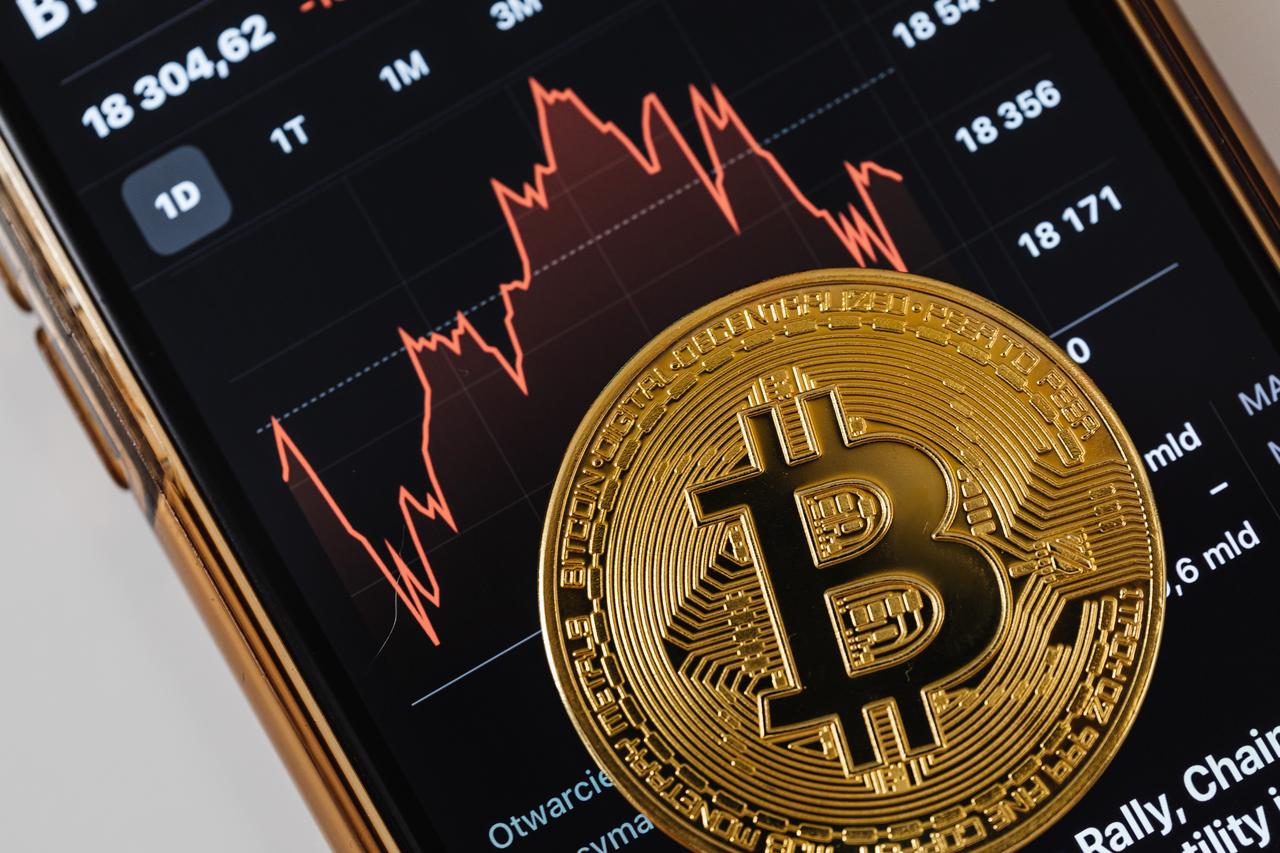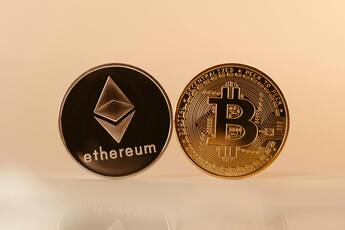
Biotech - Tales from the Crypto
Crypto and the Biotech Sector Convergence: Unraveling the Interplay
Common crypto issues that biotechs face...
Cryptocurrency Skepticism
Legitimacy of crypto in biotech remains uncertain; fraud and volatility cast shadows on its role.
Market Rollercoaster
Peaks and troughs in biotech and crypto markets pose funding and stability challenges.
Market Rollercoaster
Peaks and troughs in biotech and crypto markets pose funding and stability challenges.
Fraud Dangers
The promise of crypto authentication in med tech is countered by the persistent threat of fraud, adding risk to biotech endeavors.
Tech Hurdles
Blockchain and bio-tokens face resistance and integration challenges in biotech; tech adoption is a battlefield.
Tech Hurdles
Blockchain and bio-tokens face resistance and integration challenges in biotech; tech adoption is a battlefield.
Explore the Crypto-Biotech Nexus with a Mazards representative today! Sign up now.
The relationship between cryptocurrency and the biotech industry is a multifaceted one, as these two industries have different goals and functions. At the same time, there are interesting areas of overlap that potentially could point towards the future of each industry, including what’s to come of cryptocurrency, or ‘crypto’ as it is better known, and its legitimacy.
Let’s take a look at the correlations between the seemingly independent entities, and see how they work together now and in the future.
What is crypto, really?
You may first be asking, what exactly is cryptocurrency? Crypto is a digital, or virtual, currency that uses cryptography for security. Crypto operates independently from a central bank. It is based on blockchain technology, which is a secure and transparent ledger that records transactions across a network of computers.
Cryptocurrency has become increasingly popular as an investment opportunity and as a form of payment for various products and services.
The biotech industry, on the other hand, involves the research and development (R&D) of biological systems and living organisms for various applications, such as medical treatments. The biotech industry is crucial for advancing human health and well-being.
Where do crypto and biotech overlap?
Payment & investment
Despite the differences between the cryptocurrency and biotech industries, they intersect in some ways.
‘One of these ways is the use of cryptocurrency as a form of payment in the biotech industry,’ says Roop Chandwani, CEO of life science executive search firm, Mazards. ‘Many biotech companies have begun accepting cryptocurrency as a form of payment for their products and services, allowing for secure transactions.’
Cryptocurrency is also becoming increasingly popular as an investment opportunity, and some biotech companies have started accepting it as a form of investment capital.
Blockchain
Another way in which the biotech financing and cryptocurrency industries intersect is through the use of blockchain technology in the biotech industry. Blockchain technology has potential applications in the biotech industry, such as securely storing and managing sensitive medical data (genetic information or clinical trial results, for instance).
Additionally, blockchain technology could be used to improve supply chain management in the biotech industry, making it easier to track and manage the flow of materials and products.
Bio-tokens
Another of the most exciting ways in which the biotech and cryptocurrency industries are intersecting is through the development of bio-tokens. Bio-tokens are a new form of cryptocurrency that is specifically designed for use in the biotech industry.
These tokens are linked to specific biological systems or organisms and can be used to track and manage the ownership and use of these systems or organisms. For example, a bio-token could track the ownership and use of a specific strain of bacteria for research or commercial purposes.
DAOs
The biotech and cryptocurrency industries are also intersecting through the development of decentralised autonomous organisations (DAOs). DAOs are similar to crypto in the sense that they are organisations that operate on a decentralised system and are governed by ‘smart’ contracts.
DAOs are becoming increasingly popular in the biotech industry to manage and fund research projects. They provide a secure and transparent system for managing funds and allow for more flexibility in decision-making and funding.
Future opportunities for the biotech industry
Cryptokeepers & authenticity
Aamir Butt, Chairman and CTO of Mazards executive headhunting firm in London, sees opportunities that have yet to be seized in the crypto/biotech world:
‘Crypto whales have vast amounts of crypto value, sometimes worth billions in USD. If the medical field can engage with these crypto whales there are endless new opportunities, especially in places like Dubai where large crypto funds are sloshing around. The tricky part is doing it without tarnishing their company’s credibility.’
Butt is referring to the immutability, or inability to change, for cryptocurrency. This immutability can be useful in recognising medical devices by providing a secure and tamper-proof record of device authenticity. The use of blockchain technology, which underlies many cryptocurrencies, can create an immutable ledger of transactions that can track the ownership and use of medical devices.
This helps ensure that medical devices are not counterfeit or tampered with, and can provide a way to verify their authenticity and usage history. By using this technology, it is possible to maintain a clear chain of custody for medical devices, which can help improve patient safety and increase confidence in the devices being used.
Are there drawbacks?
Legitimacy
In 2021, the biotech market reached an all-time high in funding and valuations. A bubble had formed in the biotech space. That same year, the bubble burst. Crypto experienced a very similar fate.
When looking at the peaks and troughs of both industries, a connection can not help but be made between the bubbles (and bursts) of the crypto and biotech markets. But while the biotech market shows early signs of stabilisation, cryptocurrency’s legitimacy has yet to be validated. This illegitimacy is partially due to the numerous fraud schemes, bankruptcies, and digital hacks that have been linked to crypto in the last year alone.
‘There are aspects of crypto that can help legitimise the currency’s place in the market, especially with med tech, where there are alarming numbers of fake products out there,’ says Butt. ‘Crypto could be a good way of guaranteeing authentic products.’
But if crypto can regain legitimate value, as many predict it will, might it work alongside biotech markets in the future? Can the biotech market and the severely troubled cryptocurrency help predict the behaviours of one another someday? Could it even pay pharmaceutical headhunters to build a biotech team? Perhaps.
Piers Morgan, CCO of Pangea Botanica, says he is still watching for cryptocurrency's effects on the life sciences.
‘What is the damage going to be?’ said Morgan. ‘Is it going to be spread? Does that damage knock on other asset classes?’
Conclusion
In conclusion, the relationship between cryptocurrency and the biotech industry is complex but worth exploring. These two industries have different goals and functions, but they have some areas of overlap that make them potentially complementary now and in the years to come.
The use of cryptocurrency as a form of payment and investment capital, the use of blockchain technology in the biotech industry, the development of bio-tokens, the use of DAOs for managing and funding research projects, and the immutability of crypto are all examples of how these two industries are and could potentially benefit from each other in the future.
Mazards, a retained life sciences executive search firm in London, commissioned this piece from Dastrum, a digital marketing company.
Navigate Biotech's Crypto Frontiers. Sign up to embark on the journey into crypto and biotech, and stay informed today!



